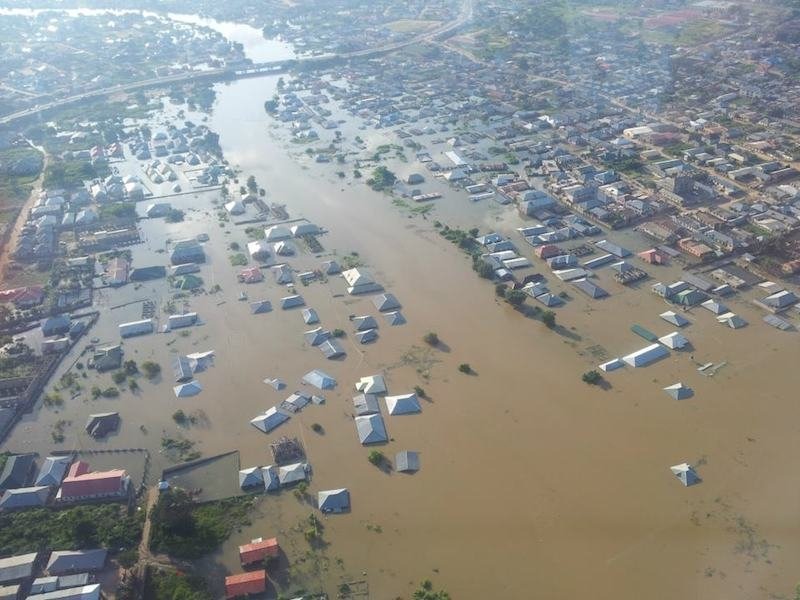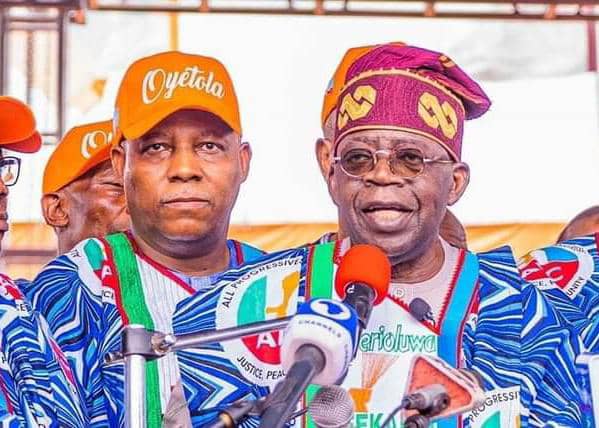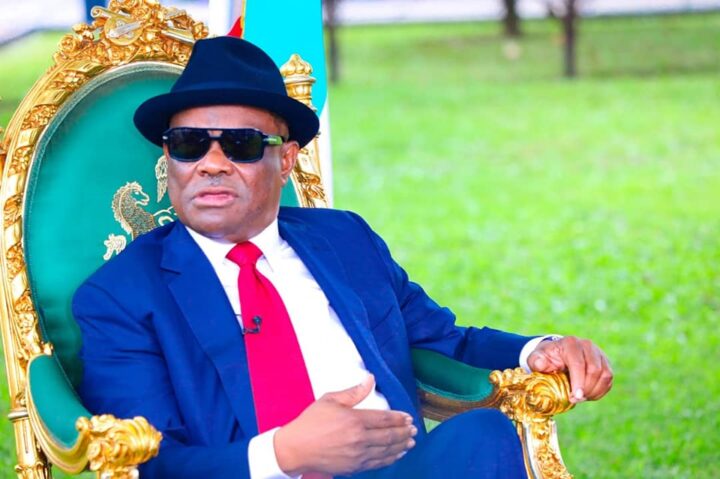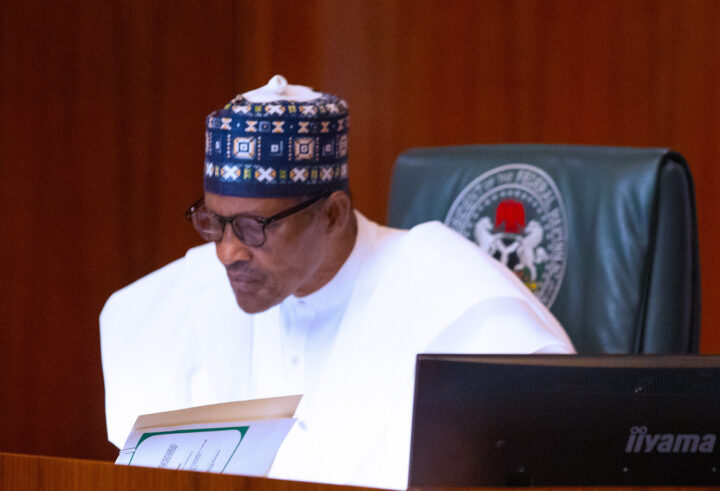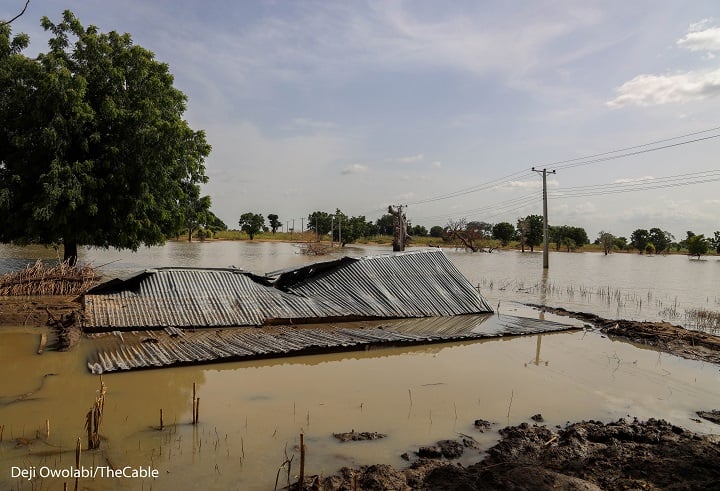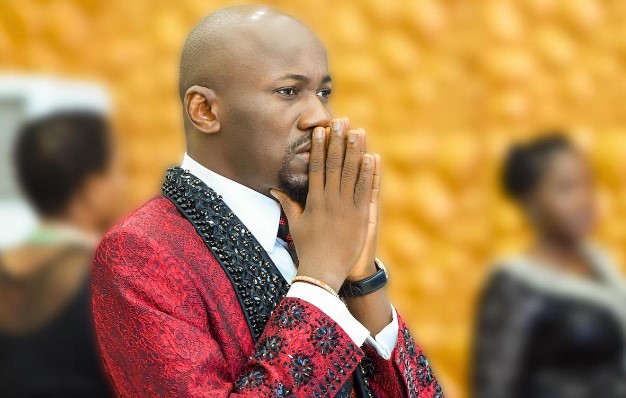Life, for Nigerians, living along the banks of rivers Niger, Benue, and other flood-prone areas in the country has been everything but comfortable or normal over the past month or so. In Lokoja, the capital city of Kogi state, for instance; from Jamata along the Lokoja-Abuja highway, down to the Nataco area of the Metropolis through the New Market area, Marine and Adankolo areas, houses were submerged in the overflowing water from River Niger and Benue. Ajaokuta-Ganaja-Lokoja road in the city was not left out.
Lokoja, the confluence city of Rivers Niger and Benue, is famous for that landmark at Ganaja which is supposed to be a source of revenue for the state had the governors, since the state’s creation on August 27, 1991, been visionary enough to harness its tourism potentials. What is ordinarily supposed to attract tourists and consequently, revenue to the government and the people of Kogi state has brought nothing but pure agony to the people as lives, properties, and means of livelihood were lost to the unfortunate incident. Houses whose roofs could be seen above water were only storeyed buildings. No bungalow stood a chance. It would take a miracle for any of the inhabitants of such buildings to survive being drowned and swept away. Stories from Asaba, Onitsha, and communities in Benue, and Bayelsa state are either similar to or worse than that of Lokoja. Niger Kebbi, Yobe, Cross Rivers, Kano, and Jigawa states all have one tale of woes or the other to tell occasioned by the flooding.
Various reasons have been advanced as the cause of the flooding. Some unconfirmed, but plausible accounts say it was due to a release of excess water from the Lagdo Dam in Cameroon, which is one of the man-made distributaries of the River Benue. They said it was as a result of the federal government of Nigeria’s failure to construct dams, 150% bigger in capacity than Lagdo, as advised or agreed upon between Cameroon and Nigeria to absorb the “excess water” whenever it is released. This trend of flooding occurs, roughly, every 10 years. It happened in the year 2002, then, in 2012, and now in 2022. The Nigerian government has, however, debunked the report saying there was no such agreement and that no excess water was released from Lagdo Dam in Cameroon.
The Nigerian minister of water resources, Suleiman Adamu, said: “God is responsible for floods” and not the release of water from a Cameroonian dam. Those who prefer to go academic would attribute it to the effects of global warming and climate change. Others believe, it is due to the misuse of the UN Ecological Funds, made available by the United Nations to tackle environmental challenges such as flooding and deforestation among others. As if to corroborate that line of argument, the Socio-Economic Rights and Accountability Project (SERAP) has called on President Muhammadu Buhari to probe how governments at all levels utilised the fund made available to them.
Advertisement
Whichever way one looks at it, there are other self-promoted factors that render some areas more vulnerable to flooding than others. While it is not my intention to blame the victims, we must not shy away from the fact that the way and manner structures are being erected indiscriminately without following the approved master plan and approval by the relevant authorities is mind-boggling. Some buildings, especially in the urban centres, are erected on drainage channels thereby preventing a free flow of erosion whenever it rains. And even where such approval is sought, corruption will not allow the officials to do what is right.
Another factor is the waste management culture of the average Nigerian. There is no properly monitored waste disposal system. Some people are in the habit of dumping refuse inside the drainage channels such that a heap is gradually formed which eventually leads to total blockage of the channel. Therefore, when there is an obstruction to a free flow of erosion, it spills into residential areas and we begin to witness stories that touch.
Now that our ship of nationhood swims in the ocean of flooding, which is an effect of our collective failure to do what is right coupled with the fact that we revel in being reactive rather than being proactive, the government cannot even match their abysmally low standard of automated responses of “we regret”, or “we condemn”, platitudinously expressed condolences and sympathies by the presidency any longer. Lately, we’ve seen our president respond to such incidents in far-flung places like Pakistan and Indonesia within hours of their occurrences, issuing condolence messages to the respective governments of the affected people. But back home (where our home charity always fails to begin), Aso Rock believes that weeks after such a horrendous disaster, Nigerians do not deserve to hear from their leader who is, ideally, expected to inspire hope. What a nation! What leadership!
Advertisement
If one wants to sound naive, one would say the president has, behind the scenes, set machinery in motion to address the issues but this is Nigeria. Baba, in his characteristic manner, might not even be “aware” of any incident of flooding in Nigeria as I pound my keyboard, putting this piece together. It would interest you to note that the only government agency that has, so far, become animated by the news of the disaster is the National Emergency Management Agency (NEMA) under the federal ministry of humanitarian affairs, disaster management and social development. Remember, this was the agency that claimed to have spent billions of naira to feed school children, during COVID-19 when no Nigerian child was in school? Okay. “Food for the boys”, you’d say. The so-called relief materials that they would claim are being packaged may not get to the supposed victims/beneficiaries, if they ever will, until the next disaster happens. We still have, fresh in our memories, how date palms donated by the Saudi Arabian government for onward distribution to people internally displaced by the Boko Haram insurgency found their way into Nigerian markets. I’m not sure if the Nigerian government has been able to provide an acceptable explanation to the donors until this moment. That NEMA is still the only animated agency of the federal government with a response to the flooding that has claimed dozens of lives and displaced over a million Nigerians is a testament to the fact that our elected leaders are rarely “on duty”. A right-thinking person would ask what sort of collaborative effort is being put up by the federal ministry of works and housing and its environment counterpart? Trust me, none!
But, in fairness to these agencies and their heads, one cannot expect more from them when the president and commander-in-chief of the armed forces of the Federal Republic of Nigeria has not deemed it fit to address the nation to provide succour, reassure the nation, inspire hope among the displaced and millions of vulnerable Nigerians and thus, providing the needed leadership to navigate this tumultuous moment of national agony. Funnily enough, if it were to have happened to other countries like the Niger Republic, Pakistan, or Indonesia, the Nigerian government would have been struggling to outdo other countries in “who first issues a statement, condoling, and sympathising with the victims”. Now, it has happened in Nigeria, and to Nigerians, and all we’ve gotten from our leader, so far, is a “deafening silence”. Going forward, maybe, it would be better if we do not expect any message of hope from our president so that we won’t be disappointed anymore. We should, rather, expect the emergence of a new set of overnight billionaires who usually cash in on the misfortunes of fellow Nigerians.
After over seven years in office, for the first time, President Buhari just realised that there should be a national flood prevention policy and has therefore asked the minister to develop one, seven months to the end of an eight-year tenure. To be implemented when and by whom? This is “wonderful cluelessness promax”.
This is the reason I am not surprised that among all those seeking our votes to become Buhari’s successor, it is only Peter Obi of the Labour Party who managed to get the media to talk more about it. He claims to have suspended his campaign in order to identify with the victims. But he never forgot to wear a cloth bearing his party’s logo. What a way to suspend a campaign in an election season. Obi deserves some credit given that he drew national attention to the issue and got people talking about it. And some governors, as a result, realise that there are victims, in their states who need relief materials to mitigate the immediate effects of the disaster. Meanwhile, these are governors who have, on behalf of the people of their states, collected hundreds of millions of naira of the UN ecological funds to be spent on projects that would prevent the occurrence of this type of calamity. I learnt that the presidential candidate of the ruling All Progressives Congress (APC) has donated ₦100 million to victims of flooding in Kano. That, I guess, is all he has to offer on the issue of flooding – no concrete action plan to address the issue long-term. I know some people would say he’s set the ball rolling on climate change with his “poisoned holy communion”, analogy. But I dare say, has flooding not been happening before climate change became a topical issue?
Advertisement
While leaders in saner climes are taking positive steps toward addressing the menace, Nigerian leaders are still recommending prayer as a panacea to a problem that proper town and urban development planning would address. An issue that global leaders are meeting on regularly to tackle scientifically through well-packaged action plans, Nigerian leaders remain helpless in the vise-like grip of the superstitious power of prayer as if other countries who have suffered severe losses do not know how to pray. Do not get me wrong. I am a Muslim (a secular one though), and I do pray and believe in the efficacy of prayer. But it is my belief that prayer should only be deployed to solve those problems that are beyond human comprehension and capability. The God that we bother with some of our frivolous prayer points has empowered humans to tackle some issues by themselves – flooding is one of them.
Abubakar writes from Ilorin. He can be reached via 08051388285 or [email protected]
Views expressed by contributors are strictly personal and not of TheCable.

